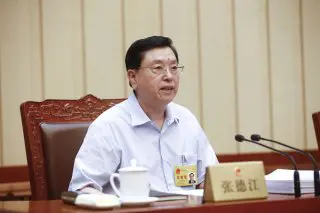China's listed companies are preparing for an unprecedented wave of resignations by independent directors following a Party directive on officials' other jobs outside their office.
So far more than 200 listed companies have reported resignations, some of whom are ex-government officials, others university professors and administrators.
As part of an anti-corruption campaign, the Organization Department of Communist Party of China (CPC) Central Committee issued a circular in October banning incumbents and college personnel from assuming posts outside their office.
The circular also stipulated that only those retired from their government role for more than three years are allowed to take up jobs at companies under relevant authorities' approval.
As a result, when public companies convene board meetings, one of the issues they have to resolve is the resignation of board members whose directorships violate the circular's mandate.
"Officials have strong political connections and hiring people with such background as directors raises questions over ethical practices and breeds collusion between business and government," said Zhang Huiming, a professor with School of Economics at Fudan University.
Public disclosures of listed companies over the past month have shown that a number of former high-ranking government officials have given up board seats. Officials at the Organization Department of CPC Central Committee said recently that tens of thousands of government officials have relinquished their external posts, including more than 200 provincial and ministerial officials.
Disclosures from China's listed firms' 2012 financial reports showed more than 640 independent directors were ex-officials.
An ex-official-turned independent director who recently resigned from a listed Chinese bank was making 364,000 yuan a year, the bank's 2013 financial report showed. The CPC said in the circular that no ex-officials should be paid for their work at companies.
The rank of these officials goes as high as ministerial level. Some have even served as director of more than one public company. Their role in these companies has often been questioned.
The Chinese securities regulator introduced independent directorships to public companies in the early 2000s in hope that such arrangements, along with the supervisory board, could enhance public companies' corporate governance and protect minority shareholders' interests.
However, instead of inviting qualified and competent professionals to serve on their board, public firms have been inclined to reserve such seats for prominent government officials and scholars in exchange for their political and social influence.
Liu Jipeng, director of Capital Research Center at China University of Political Science and Law, said competency to fulfill responsibilities required of an independent director was not the major criteria for some public companies when considering potential candidates.
Liu suggested that what some public firms were looking for someone who would take the money and become a yes man.
"Some of these official-turned independent directors don't even attend boarding meeting and don't vote on major decisions the company makes,"Liu said.
Independent directors are supposed to ensure a public company operates in line with regulatory requirements. Yet in practice, analysts say some directors just looked the other way, while those who do exercise their right of supervision find themselves in problems.
Such is the case of Zheng Lixin and Xu Zhuangcheng, independent directors at Tianmushan Pharmaceutical. The company reported on May 29 that its restructuring plan had been delayed. Both Zheng and Xu questioned the validity of company's financials and voted against the restructuring. This led to a motion by the firm's largest shareholder to remove them from the board. The Shanghai Stock Exchange is now looking into the dismissals.
Liu said much of Chinese public companies misconduct can be attributed to corporate governance. He added that a public company is vulnerable to power abuse by a controlling shareholder - usually those who run the company - when independent directors do not do their job well.
People's Daily, the CPC's flagship newspaper, said in a commentary on Monday that the surge in resignations by ex-official-turned directors has provided a good opportunity for government to withdraw from the marketplace.
It also said that though hiring officials as board members may have proved beneficial in the short-term, such decisions will not help a company in the changing market environment and does no good in cultivating sound corporate governance.
To Xu Feng, a partner at Shanghai Huarong Law Firm, it all boils down to the issue of representation. "These independent directors are handpicked by the majority shareholder, so how do you think they can represent the interests of minority shareholders and turn against the people who brought them on board?"
Xu cited a study his law firm conducted showing that most of the directors removed over the past few years had one thing in common: they failed to exercise their due diligence to ensure corporate compliance and represent minority shareholders.
Xu urged regulators to overturn the current system in which many directors are nominated by majority shareholders.
"There should be voting proxies for small and medium shareholders. While retail investors can share the growth of a public company, they should have these proxies to decide company matters on their behalf.
"Such proxies have already been introduced to represent institutional investors such as private equities and other investment funds in public companies, and they could represent retail investors in the future."
 简体中文
简体中文

